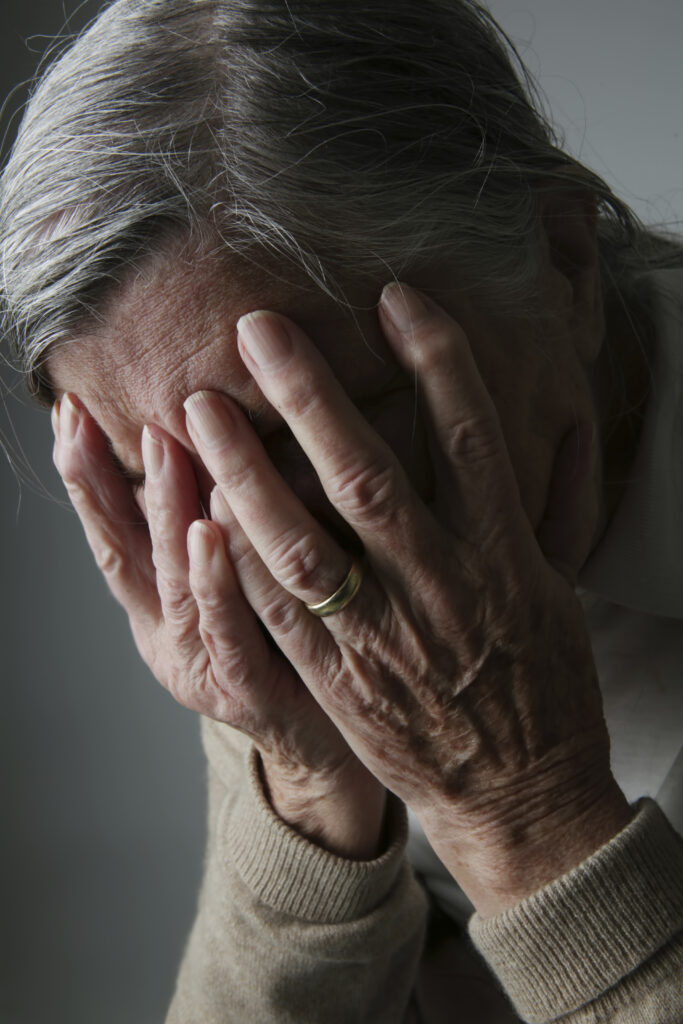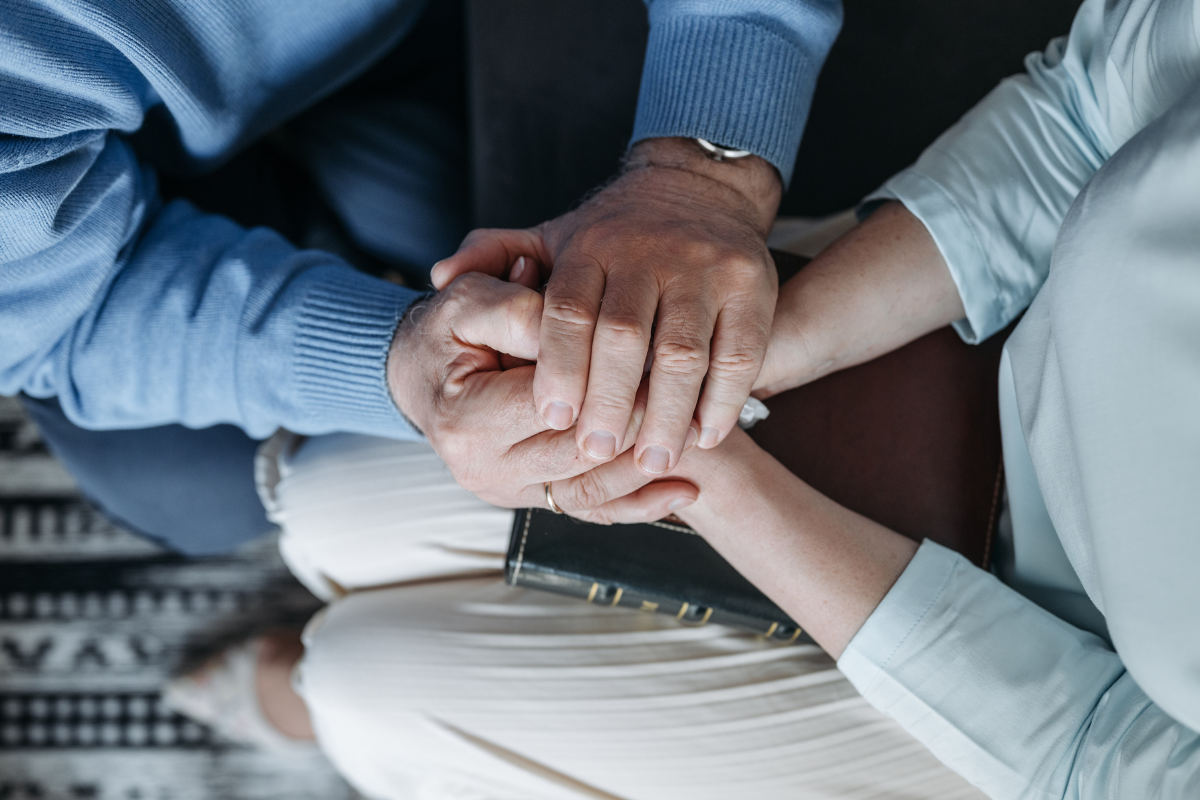Grief is an emotion that is universal, something that we will all experience to some degree at some point in our lives, and more than once. The death of a loved one, the end of an important relationship, and even the loss of a job are all experiences that can cause us to feel grief. It’s a deeply personal emotion and something which we all react to and deal with in our own ways. It isn’t a linear process. It has no timeline or schedule. And it affects individuals in very different ways – none of which are ‘wrong’.
Although everyone’s experience of the grieving process can be different, in 1969 psychiatrist Elizabeth Kubler-Ross observed that grief could be divided into five separate stages that demonstrated a common ‘order of feelings’ that is recognised among most people who are grieving:
- Denial
- Anger
- Bargaining
- Depression
- Acceptance
Grief stage 1. Denial
Of all the emotions we as human beings experience, grief is undoubtedly one of the most overwhelming, stirring up strong and sudden feelings that can make life suddenly seem unreal. The automatic response for most people upon experiencing a life-changing tragedy such as the death of a loved one is disbelief.
“This isn’t happening. This isn’t real”
It’s common upon hearing such news to stare blankly, to ask for the news to be repeated, to feel like the world is suddenly spinning. This denial is your brain’s way of giving you time to absorb the news and to process it, a defence mechanism that helps numb you to the intense rush of feelings.
People in the first stage of grief feel empty and lost, often delaying emotional responses like crying, even if only for a short while. The length of the denial stage is different for everyone, but examples can be expecting a loved one to come home or call even after you’ve been told they’ve died, believing a terminal illness diagnosis to be wrong, or that a partner ending a relationship ‘didn’t really mean it.’
For some this denial will pass fairly quickly when the emotions that have been temporarily suppressed start to rise as the brain kicks back into reality, but there are instances when it can take much longer. We see this in cases where grieving relatives keep a loved one’s room as it is and do their washing for when they ‘come home’, or those who seek out a second opinion on a diagnosis of an illness, or continue to contact a now-ex because they can’t believe the relationship is over.
Grief stage 2. Anger
While denial is a coping mechanism, the second stage of grief, anger, has more of a masking effect, causing you to hide your true pain and emotions. It’s common to direct that anger towards the loved one who has died, or the doctor who diagnosed your terminal illness, or even God, for example.
Despite the rational part of your brain knowing that the object of your anger isn’t to blame, the intense feelings of grief that you are experiencing don’t allow you to act accordingly. This stage can cause people to take their anger out on inanimate objects (punching walls and breaking things aren’t uncommon in extreme cases of grief-stricken people), or it could present itself in feelings of quiet bitterness and resentment rather than blind fury or rage.
Again, this stage varies in length depending on the individual, and some can linger at this stage for a long time, taking their anger out on anyone or anything that comes their way. Once the anger subsides, people experiencing grief start to think more rationally and start to feel the real emotions that their anger has been masking.

Grief stage 3. Bargaining
Grief can leave us feeling helpless, so it’s not uncommon to start looking for ways to regain control of the situation or ways in which you can affect the outcome. A lot of ‘what if’ and ‘if only’ statements are created during this stage, for example, “If I had gone with her that night, she’d still be with us”….” If I’d seen a doctor sooner, I could have got treatment.”
A lot of people, religious or not, will find themselves making deals with God or a higher power in return for a different outcome, or for relief from the pain they feel. The bargaining stage of grief is a defence mechanism against the emotions of sadness and hurt – it comes from a desperate need to DO something to change what has happened.
Grief stage 4. Depression
Depression is a more passive stage of grief, unlike anger and bargaining which can be very active. Once you’ve reached this stage of loss you’ve stopped running from your emotions, and it’s often a time when people want to be alone to try and cope with their loss, and maybe even try to find ways to embrace and work through it.
Despite being a ‘quieter’ stage, it’s certainly not clean or easy…it can be messy and overwhelming and is often the stage that is hardest to move past. For some people, speaking to a mental health professional such as a grief counsellor can help them to feel less ‘stuck’, and while it is a ‘normal’ part of grieving, it can become unhealthy – particularly if it’s causing you to not look after yourself or those who depend on you.
If you are struggling with your grief after a bereavement or loss, the NHS website offers advice and support
Grief stage 5. Acceptance
Acceptance doesn’t mean you’ve moved on or ‘got over it’, but it does mean that you understand what the loss you’ve suffered means to your life now. During this stage you may start to find it easier to celebrate the life of someone you’ve lost, for example, to feel gratitude for the happy times you had with them and for the memories. After the grief of a breakup, you might now see that this was a healthy choice for you, or that it was for ‘the best’.
During the acceptance stage of grief, you may be more aware of the huge change in your life, and how it has made you a different person, and you may start to have more ‘good’ days than bad while knowing that you have the strength to get through the bad ones when they happen.
This ‘order of feelings’ may not apply to everyone, and coping with loss can entail experiencing these stages in any order. It’s also not uncommon to circle back to a stage that you’ve already experienced and have to work through it again. Denying yourself the chance to express your grief might help you disassociate from the pain, but grief can’t be avoided forever, and if unresolved it can manifest physically or emotionally and affect your health.
If you have experienced loss and need to speak to someone, Cruse Bereavement Support offers a helpline and online chat service, as well as access to an online community where you can share and connect with others who are struggling with grief. You don’t have to go through this alone.
About Care in Kent
Drawing from our extensive experience in the care sector, Care In Kent understands the profound impact of grief on both individuals and families. Through our years of dedicated service, we’ve witnessed firsthand the diverse ways grief manifests among those we care for.
At Care In Kent, we prioritize not just the physical well-being but also the emotional and mental health of those under our care.
For further guidance and assistance during times of bereavement or if you seek support in caring for your loved ones, Care In Kent is here to lend a compassionate hand.


